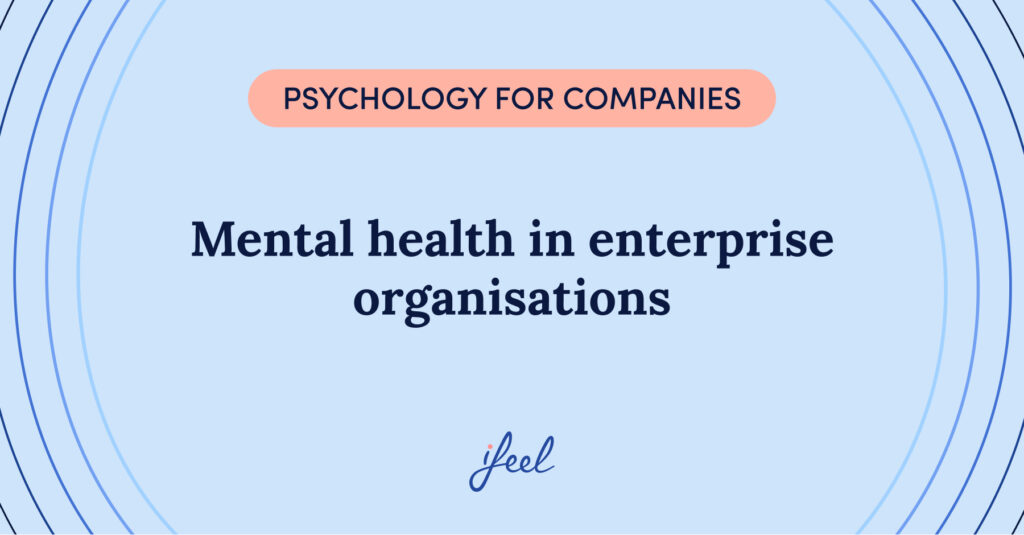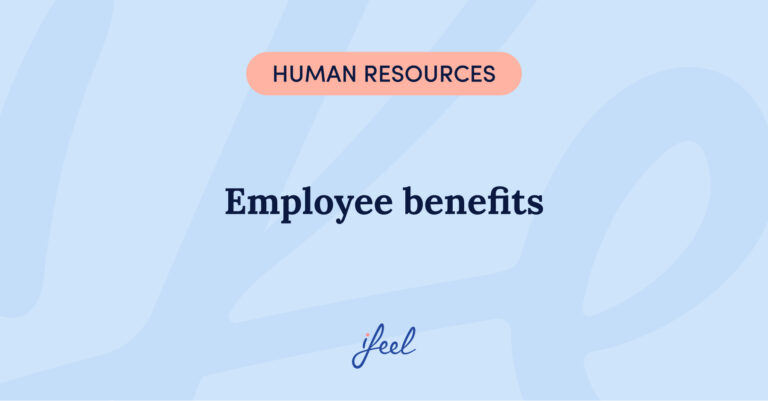Mental health in enterprise organisations is no longer a secondary concern. It is a critical factor that underpins productivity, operational stability, talent retention, and employer reputation. According to the World Health Organization, anxiety and depression alone cost the global economy approximately $1 trillion annually in lost productivity. For enterprises, addressing mental health proactively is not just an ethical obligation but also a strategic decision that directly impacts measurable business outcomes.
This article explores how mental health in enterprise organisations influences operations, the tools and strategies to manage it effectively, and the measurable benefits of its implementation.
Why mental health matters for enterprise organisations
Enterprise organisations operate on a scale characterised by complexity, global reach, and diverse workforces. Mental health in enterprise organisations is a performance variable that directly shapes execution, resilience, and team cohesion. When prioritised, it can reduce operational risks, stabilise outputs, and encourage workplace cultures that attract and retain top talent.
Key considerations when analysing mental health in enterprise organisations
- Impact on employee performance
Poor mental health narrows cognitive bandwidth, delays decision-making, and increases the likelihood of errors. These effects ripple across entire teams and functions, particularly in safety-critical or customer-facing roles, resulting in quality issues and missed service-level agreements (SLAs). - Resilience during change
Enterprise organisations frequently undergo transformation, whether driven by market forces, governance, or supply chain-related factors. The mental health of teams determines how well they adapt to these changes while maintaining operational standards and consistency in output. - Equity and accessibility
With operations spanning multiple geographies, enterprises must ensure consistent support for mental health across regions, identities, and roles. This requires alignment with local compliance frameworks while delivering culturally competent solutions. - Data and confidentiality
Privacy-first governance frameworks must underpin mental health initiatives. Responsible use of health signals builds trust among employees and ensures compliance with regulations like GDPR.
By embedding mental health into organisational rhythms, from leadership training to performance management, enterprise organisations can create the foundation for long-term stability and growth.
Strategic impacts of mental health
The effects of mental health in enterprise organisations can be observed across four key dimensions that decision-makers must address to ensure optimal outcomes.
1. Performance and execution
When sustained stress remains unaddressed, employees experience reduced cognitive function, resulting in delays in decision-making, rework, and increased quality risks. For example, absenteeism and presenteeism in customer-facing roles often result in missed SLAs and increased defect rates.
2. Personal well-being and safety
Distress impacts physical health, leading to fatigue, disrupted sleep, and other symptoms. In roles that require focus and precision, these symptoms compound risks and contribute to increased medical claims and costs.
3. Absenteeism and turnover
Unplanned absences and high turnover disrupt team cohesion, slow onboarding processes, and lead to knowledge loss. Early detection and intervention help reduce churn and minimise operational disruptions.
4. Team climate and collaboration
Psychological safety is at the heart of innovation, collaboration, and error reporting. When distress rises, trust erodes, conflicts increase, and silos emerge, damaging cross-functional communication.
Recognising these impacts early can guide preventive interventions, improving operational performance and organisational resilience across complex environments.
Download our latest guide on the costs of absenteeism and presenteeism
Absenteeism and presenteeism are among the most visible impacts of poor mental health, causing disruptions to workflows, increased costs, and decreased team productivity. Proactively addressing these challenges is essential for operational resilience and efficiency. Our latest resource provides insights into how enterprises can leverage preventive mental health strategies to mitigate these risks.
Download the guide to reduce absenteeism and presenteeism.
Tools for measuring and managing mental health
Effective mental health programmes must combine clinical tools, scalable care pathways, and transparent measurement. ifeel’s clinically validated framework offers enterprise organisations the ability to move from reactive models to proactive strategies.
Validated clinical assessment tools
ifeel’s data-driven approach includes instruments that accurately measure emotional and functional health while respecting employee privacy.
- PHQ-9: Screens for depressive symptoms and guides early interventions.
- GAD-7: Identifies generalised anxiety, helping employees manage acute stress.
- WSAS: Measures how symptoms of distress impair work, social, and domestic capacities.
- SOFAS: Assesses social and occupational functioning, which helps track recovery and functioning over time.
Operational frameworks for intervention
A scalable approach to mental health combines stepped care with periodic reassessment to ensure timely support.
- Stepped care pathways: Employees receive tailored support based on their needs, ranging from self-guided resources for mild cases to coaching and professional therapy for severe challenges. Crisis pathways are available when necessary.
- Confidential measurement: PHQ-9, GAD-7, WSAS, and SOFAS scores track change and progress, enabling HR teams to demonstrate impact without exposing identifiable employee data to management.
These tools convert mental health in enterprise organisations into a powerful performance lever that is measurable and aligned with strategic goals.
Best practices for implementing mental health programmes
Successful mental health programmes are built around the principles of accessibility, confidentiality, and cultural competence. To ensure a scalable solution, enterprises should follow these practices.
| Area | Description | Actions |
|---|---|---|
| Baseline and goals | Confidential, data-led starting points | Conduct anonymous assessments; define KPIs; segment by geography and role |
| Manager capability | Build literacy and referral confidence | Train managers on recognising symptoms and referring employees to appropriate pathways |
| Care pathways | Offer scalable and tailored support | Provide multilingual self-care, coaching, psychotherapy, and crisis intervention |
| Measurement | Track outcomes that matter | Monitor PHQ-9, GAD-7, WSAS, and SOFAS scores alongside absenteeism trends |
| Governance | Prioritise privacy and equity | Ensure compliance with local regulations and conduct equity audits across global regions |
A preventive strategy ensures interventions are timely, effective, and sustainable over the long term.
Clinical and financial benefits of mental health programmes
Executives need to link mental health improvements to operational and financial results. Doing so builds the case for sustained investment in preventive mental health strategies.
Operational gains
Improved PHQ-9 and GAD-7 scores restore cognitive bandwidth, enabling teams to make faster, more accurate decisions. Functional gains measured through WSAS and SOFAS reduce rework and recovery costs while stabilising organisational performance.
Key financial levers
- Fewer absences: Shorter recovery cycles reduce backfill demand and scheduling strain.
- Reduced presenteeism: Improved functional capacity lifts productive hours per full-time employee.
- Lower turnover: Early interventions preserve knowledge and reduce hiring costs.
- Healthcare utilisation: Shifting from reactive to preventive care reduces high-cost medical escalations.
ifeel’s preventive mental health solutions achieve up to 50% engagement rates and ten times more interactions compared to conventional Employee Assistance Programmes (EAPs). These outcomes deliver population-wide improvements while giving HR teams the data they need to demonstrate impact to leadership.
Download our latest comparative study between ifeel and EAPs and find out how innovative digital solutions like ifeel can redefine mental health support in your enterprise.
The Silent Profit Drain Whitepaper 2025
Mental health in enterprise organisations often appears as a small line item but drives disproportionate operational and financial drag. ifeel’s 2025 Whitepaper outlines the cost architecture of mental health in enterprise organisations, shows how functional assessment predicts absenteeism and performance dips, and presents an operating model for preventive care at scale. It includes case patterns of reduced absenteeism and increased engagement compared with conventional approaches.
Download The Silent Profit Drain Whitepaper 2025 here.
Transforming mental health in enterprise organisations
Addressing mental health at scale requires solutions that are clinically robust, culturally competent, and securely designed to respect employee privacy. Platforms like ifeel provide evidence-based care pathways across +90 countries and over 51 languages, enabling HR leaders to reduce risks, support employees, and achieve measurable outcomes.
Mental health is a priority, not an option. At ifeel, we understand that mental health initiatives are essential for the success of organisations on a global scale. Contact our experts to explore tailored solutions for mental health in enterprise organisations and create a stronger, more resilient workforce.











